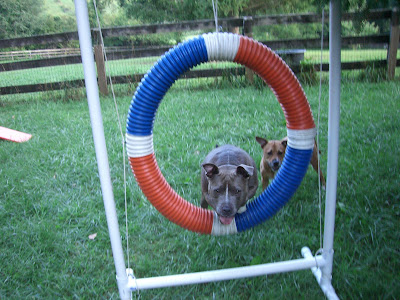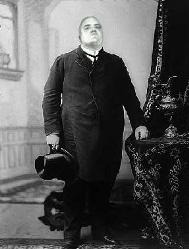 (subject bush/tree thing)
(subject bush/tree thing)Yew (Taxus baccata)- This ornamental evergreen shrub contains toxic alkaloids that disrupt heart functions. It also contains cyanide. Ingestion of even a quarter pound is sufficient to kill an adult horse in 15 minutes. There are no symptoms, the horse just falls over dead.
Holy %#(@^& $#*^!!!!
Moments later I was sprinting up to the pasture with a saw. Sure, the tree had been there for years, the previous owners had kept numerous horses in these same pastures, but surely it was going to attack my horses any minute now that it was aware I knew of its sinister plans.
About half an hour later, the offending plant had been removed and I was picking berries out of the grass. Crisis overted... or so I thought. Here is a list of other things that are poisonous or otherwise harmful to horses:
Azalea or Rhododendron:

(thankfully this is in my front yard, not in a pasture)
Pretty in a picture, deadly in a horse belly. Toxin causes gastric and cardiac distress. Within six hours of ingestion, a horse can appear colicky and have tremors, along with cardiac arrhythmia. If enough of the plant is ingested, the horse could collapse and die.
Black Locust:
Toxins affect the gastrointestinal tract and nervous system. As soon as one hour after consumption, your horse could exhibit depression, anorexia, weakness, abdominal pain, diarrhea and cardiac arrhythmia. Death can occur from consuming significant amounts of toxin.
Fences: As we have found out, horses can kick fences and hurt themselves. May require ultra-sounds or hospitalization.
Bracken Fern: (Pteridium aquilinum)
Causes a vitamin B1 deficiency that leads to weight loss, muscle tremors and death.
Lack of fences: Would allow horses to find and eat Bracken Ferns, Rhododendron, etc...
Buttercups: (Ranunculaceae family)
Ingestion of any part of the plant causes protracted, bloody diarrhea and severe blistering of the mucous membranes lining the entire gastrointestinal tract.
OK, now that sounds like the worst thing ever... blistering of the mucous membranes? Good grief. I will note that a nearby farm has pastures that are almost entirely buttercups and they have horses. Apparently these horses have continous bloody diarrhea.
Groundsel, Tansy Ragwort, Fiddleneck and Crotolaria:
Ingestion will cause liver damage.
Hemlock: - not the pretty evergreen tree but this parsley-looking plant:
Nightshades: A relative of the Tomato plant (and yes, tomatoes are also poisonous to horses).
Ingestion of leaves or fruit will cause bloody diarrhea, weakness, salivation, trembling, progressive paralysis and death.
Oak trees(Quercus Spp): Yes, even Oak trees; the leaves and acorns contain tannic acid which is poisonous to horses.
Oleander:
Can cause nausea and extended exposure can be deadly. I guess horses just hate their brand of watered-down rock music. Yuck. Note: I think there is also a plant, Oleander, so I may be a bit confused here.
Grass: Yes, too much fresh grass can cause laminitis (founder). I'm not even making this one up.
Tabacco: Nicotine affects the central nervous system. NEVER let your horse smoke cigarettes. If your horse has been smoking and appears twitchy and irritable, he does not need another cigarette, he is experiencing tabacco poisoning.
Water lillies:
Children's laughter:


















































